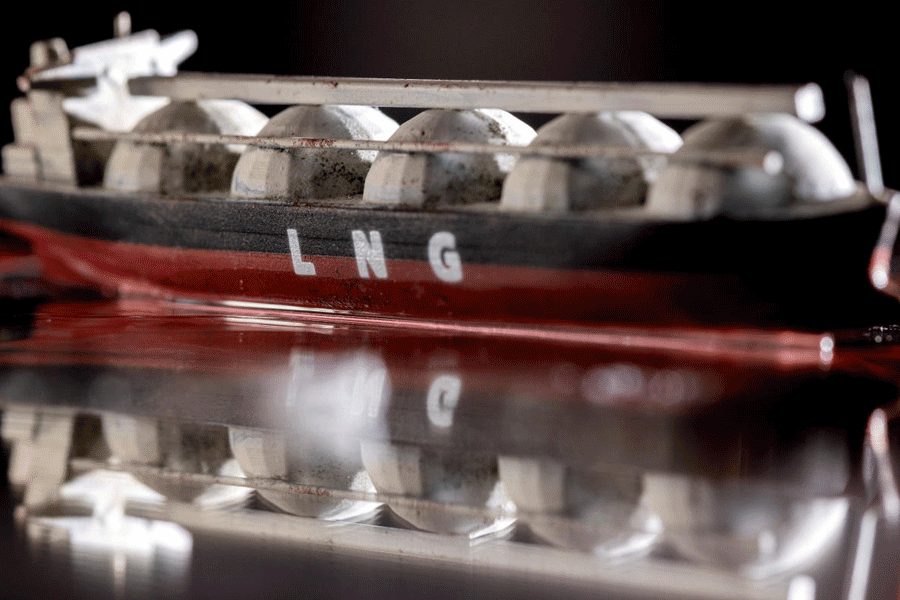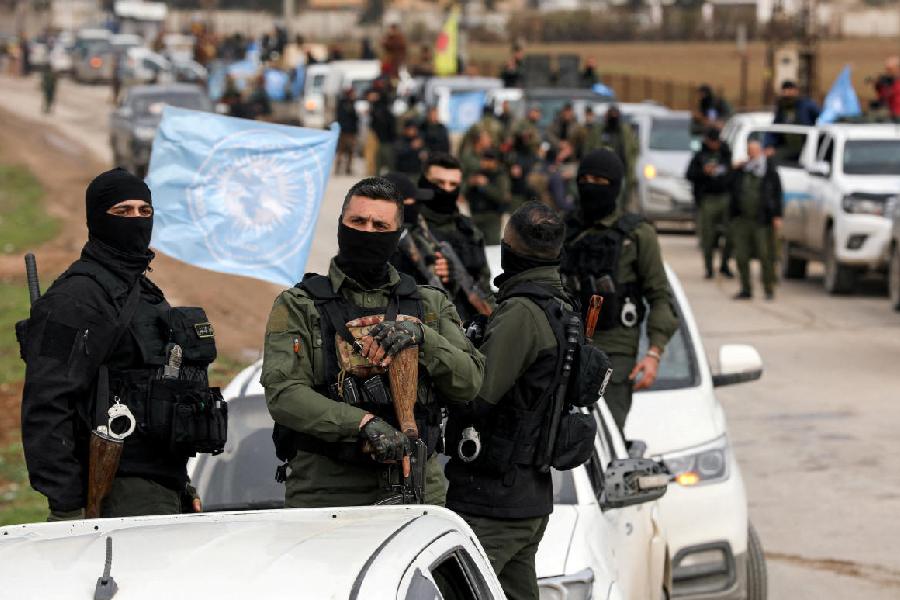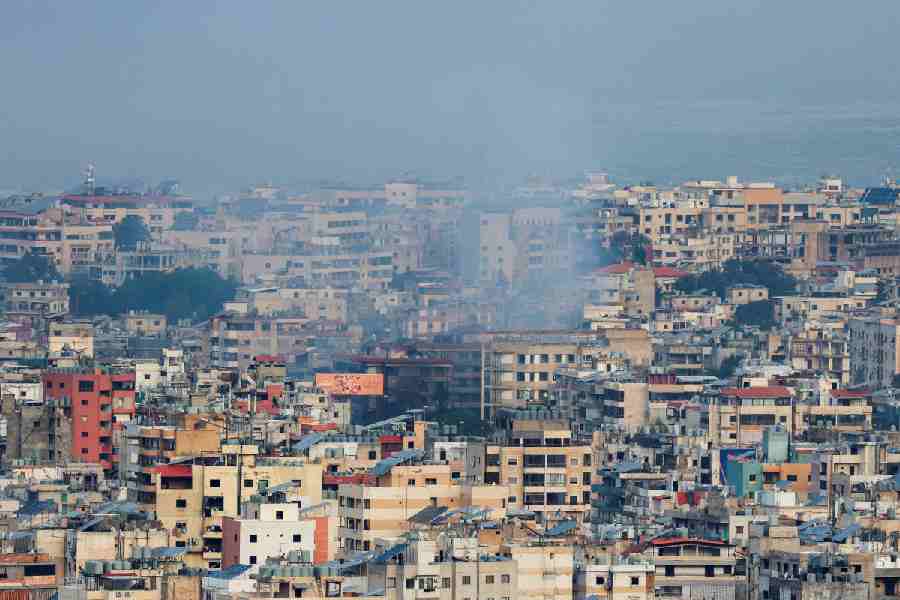 |
| Pervez Musharraf and Tony Blair in London. (AP) |
 |
| British Prime Minister Tony Blair (left) and wife Cherie with Pakistani President Pervez Musharraf (right) and wife Sehba at 10 Downing Street in London on Tuesday. (AFP) |
London, June 17: President Pervez Musharraf of Pakistan flew into London today for lunch with Tony Blair, a day after a judge ruled that the word “Paki” was offensive when used in racist chants on the football terraces.
The British Prime Minister is sensitive and educated enough to know that “Paki” has a derogatory meaning when used in common parlance, and is unlikely to use the expression in his talks with Musharraf. This is more than can be said for President George W. Bush, who had assumed that “Pakis” was an abbreviation for Pakistanis.
In January last year, when he was trying to defuse mounting tension between India and Pakistan, the US President said: “We are working hard to convince both the Indians and the Pakis that there’s a way to deal with their problems without going to war.”
Bush was quickly forgiven for this unintended insult on the ground that he is Texan, but Syed Adeeb, the editor of the Washington-based Pakistan Times, disclosed that he had received about 50 e-mails from readers complaining they had been offended.
“Not only here but Pakistanis in Pakistan and all over the world feel this is insulting and derogatory,” commented Adeeb. “President Bush is not the only offender. A lot of Pakistanis in the New York area have complained to me that government officials have been using the word.”
It was left to Scott McClellan, a White House spokesman, to soothe ruffled feathers.
“The President has great respect for Pakistan, the Pakistani people and the Pakistani culture. Pakistan has been a strong member of the international coalition in the war against terrorism,” McClellan said.
Now, a new controversy over the use of “Paki” has cropped up in Britain, where the abbreviation was probably first used back in the 1950s to describe immigrants from the Indian subcontinent. Indians, who find themselves at the receiving end of this common term of abuse, are doubly irritated, first, because “Paki” is intended as an insult aimed at brown skinned people, and, second, because they are Indian.
In the High Court in London yesterday, a senior judge, Lord Justice Auld, ruled that the use of “Paki” in racial chants in football matches was offensive. The judge overturned a previous verdict in a magistrate’s court in Stoke-on-Trent that “Paki” was merely shorthand for someone from Pakistan and was no more insulting than “Brit, Aussie or Kiwi”.
The appeal in the High Court arose from a match between Port Vale and Oldham Athletic in October last year at Port Vale’s ground in Burslem when up to 100 home supporters began chanting at Oldham fans: “You are just a town full of Pakis.”
The chanting was deemed provocative because Oldham had been the scene of race riots in May 2001.
A police intelligence officer watching the crowd spotted a 21-year-old youth, Sean Ratcliffe, among those chanting. Two weeks later, Ratcliffe was arrested and charged under the Football Offences Act 1991.
At the trial in January this year in Stoke-on-Trent magistrate’s court, Ratcliffe’s lawyers argued that the phrase was not insulting under the meaning of the act. The district judge presiding over the magistrate’s court, Graham Richards, accepted the argument and acquitted Ratcliffe.
But the verdict was thrown out yesterday by Lord Justice Auld, who told the High Court: “It is odd and a shame that this is so in this country but the unpleasant context in which it is so often used has left it with a derogatory or insulting, racialist connotation. It is also all too familiar an expression to the courts, used as it so often is as a prelude to violence, whether provoking or offering.”
The Oxford English Dictionary is on Lord Justice Auld’s side for it defines Paki as: “ (pl Pakis), Brit slang offens, a Pakistani, esp. an immigrant in Britain (abbreviation).”
British newspapers would not dream of calling Musharraf a “Paki” or even the “Pak President”.
Care is being taken by the BBC, which is interviewing Musharraf and L.K. Advani, the deputy Indian Prime Minister who is also in town, that they do not accidentally bump into each other at Television Centre.
“We were a little nervous,” said a BBC source. “But it’s ok, Advani is coming during the day, and Musharraf at night.”










